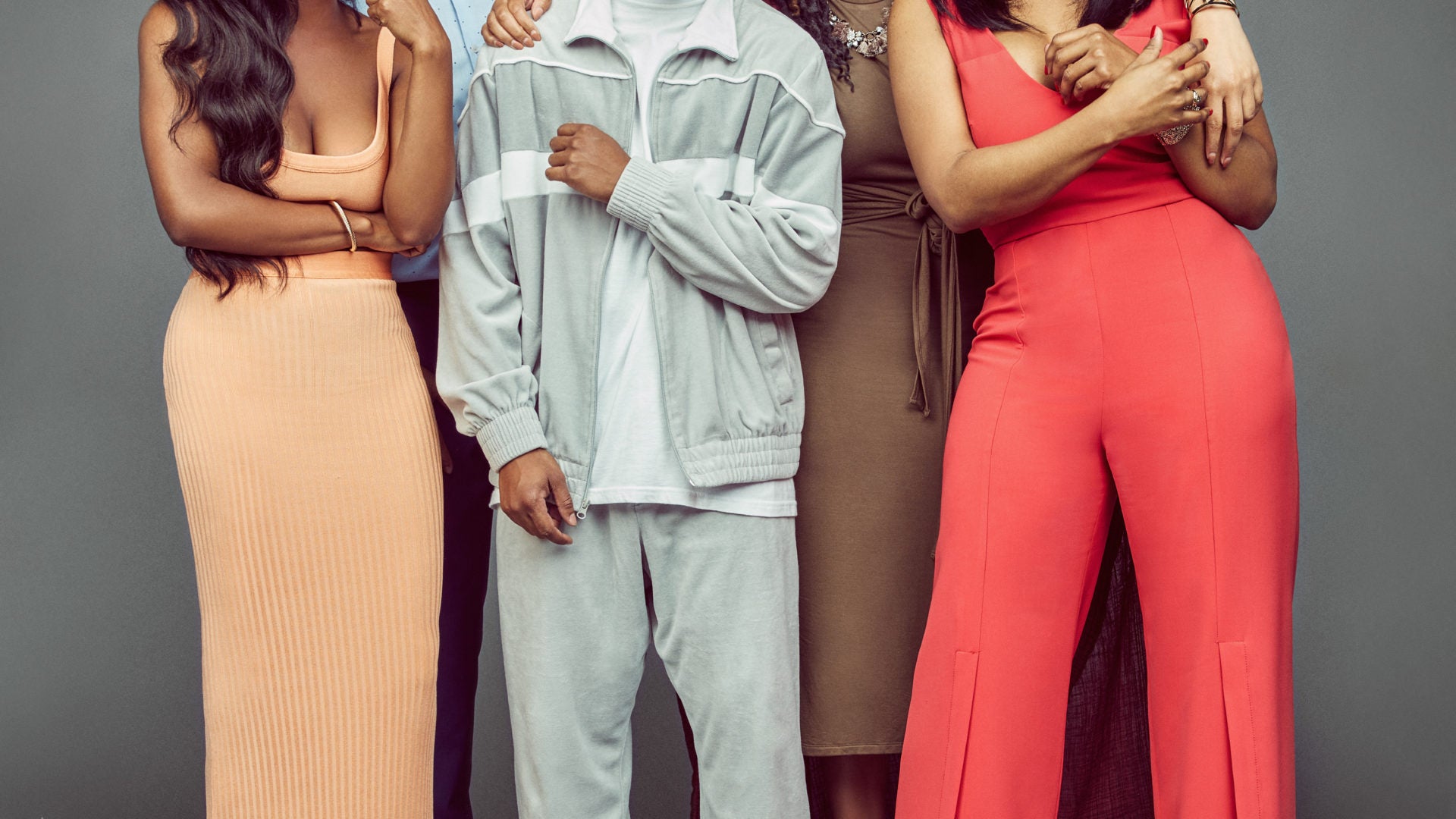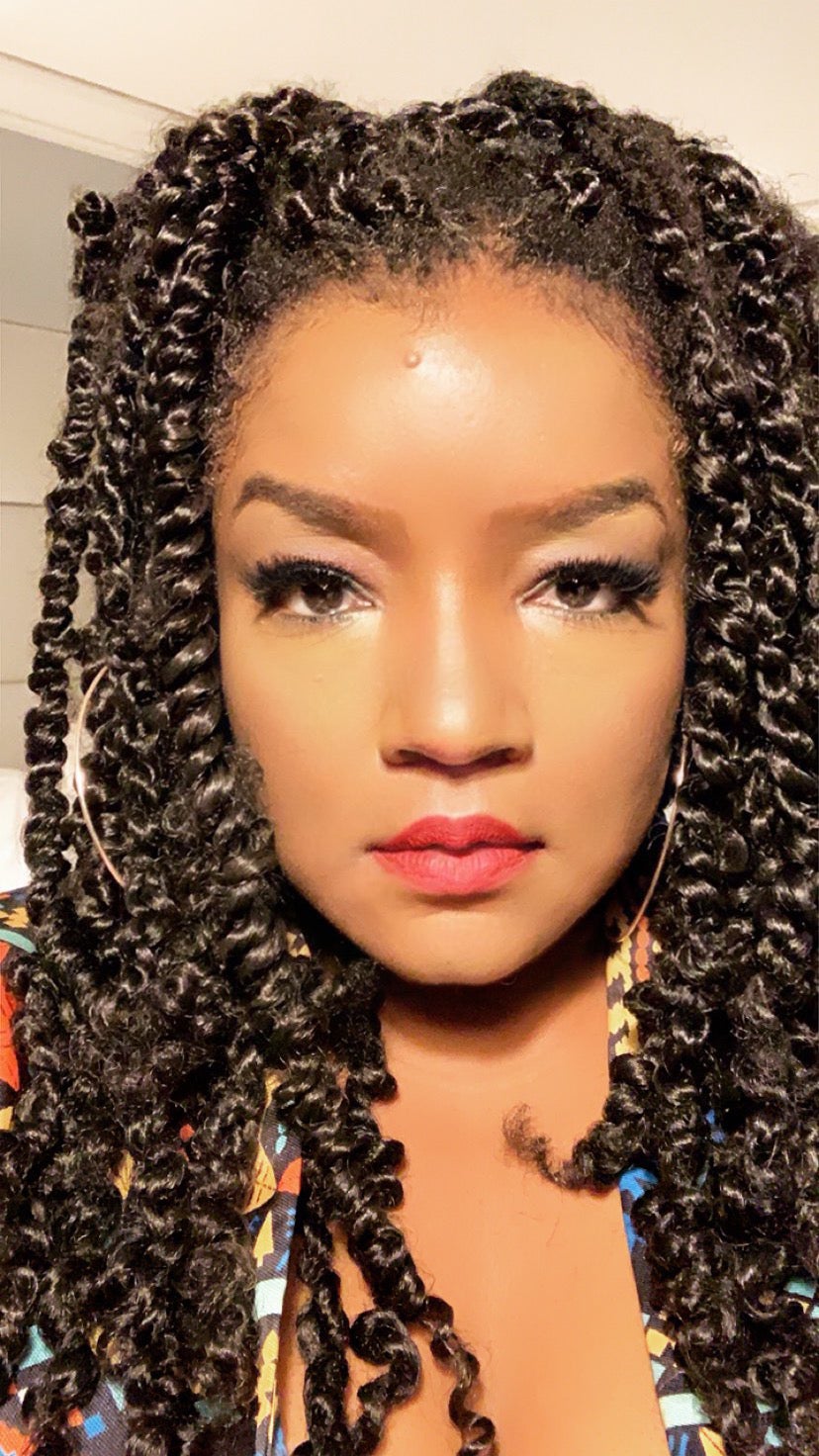
A hidden gem on BET+ streaming service is the hit comedy Bigger. Executive produced by Will Packer, the show follows a close knit group of five friends as they journey together through life and love. The ensemble cast, which includes Tanisha Long, Angell Conwell and Rasheda Crockett, gives viewers a hilarious peek into the world of millennials finding their way.
The representations of Black womanhood on Bigger are unlike anything before it. The antics of a devoted fiancé with a side bae, an upwardly mobile businesswoman who runs game better than most men, and a jilted reality TV star looking for her life’s next act are enough to make sisters clutch pearls and be envious. Show creator, Felischa Marye, says these depictions are intentional. “We have a very complex history with representation as Black women,” Marye says. “So, of course, we’re protective of our image and how we’re represented. But in that, eventually, some of our content got so sanitized that it didn’t ring true.” To find shows with edgier content around life and love, Marye says Black women had to go outside of our community, to shows like Sex & the City, for that kind of entertainment. “I was tired of seeing White girls have all the fun and I wanted to create something that pushed the envelope but still respected Black women and our friendships.”

Exploring Black women’s friendships is the show’s superpower. As reality television successfully portrays Black women as unable to have meaningful friendships and as sisters long wondered if Mary Jane Paul, Olivia Pope or Annalise Keating had any homegirls to keep it real with them, Bigger stands alongside Insecure, Grownish, Boomerang and BET+’s other hit First Wives’ Club to provide necessary depictions of friendships among Black women onscreen. Marye believes seeing Black women on television as friends is vital because it reflects our reality. “I don’t know a Black woman whose life isn’t fueled by her friendships,” she says. “I truly believe that Black women’s friendships serve us in much deeper ways. Oftentimes, we are so attacked as Black women and we have dating struggles that might be unique to us culturally for a variety of factors. So, there’s some comfort in knowing you’re not alone.”
Yet, Bigger does not paint the journey of Black women’s friendships as a linear process without complications. An episode reveals that two of the besties weren’t initially friends. However, their healthy skepticism and mistrust of each other dissipated as they bonded over a common experience: heartbreak. “It’s a shame that they connected around pain from a man,” Marye explains. “But that’s how women connect sometimes. I think that’s what makes Black women’s friendships so special. It’s shared struggle and holding each other up so you know you’re not alone in a way that is unique to us. Because our struggles are unique to us.”
In many ways, the importance of friendships in Bigger is a love letter to the friend circles in Marye’s own life. A graduate of the University of Illinois at Urbana-Champagne and UCLA, and a member of Delta Sigma Theta Sorority, Inc., Marye credits her friendships as a sustaining force. “I always write about friendships. I think it’s important to explore what they give to a person and what that gives to the group.” Marye leaned heavily on those friendships when she left her career as a vice president of a public relations agency in Chicago to move to L.A. and pursue screenwriting. “My friends gave me courage when I couldn’t find it and gave me permission to be afraid when I couldn’t tell the White folks I was.”
As Black people look for the courage to pursue their dreams, it is often found in the support of their friends. Marye says she and veteran showrunner Devon Shepard took real care in crafting a show that honors that reality. “We pulled together a writer’s room of real people who had a lot of experience that reflected the characters. We were truly honest about our biggest questions and fears and we let our hearts out, no matter what that was.” Marye, who believes in writing “from an emotional truth”, believes it is that vulnerability that has allowed viewers to connect with various storylines throughout the show.
As a result, the #BiggerOnBET Hive grew weekly, as new episodes were released on the platform each Thursday. Though the ten episode first season has ended, people are still discovering it and the show’s fanbase continues to grow. One question, in particular, is asked each week by those who love the show: Why isn’t Bigger on cable instead of the app? Marye appreciates the sentiment and explains that Bigger would be a much different show if it was on the cable channel instead of the streaming app.
Initially, Marye and her team were working on a much broader comedy for the BET cable channel when they were presented with the opportunity to create a project for the streaming service. “The opportunity to put it on streaming took censorship away and gave us the ability to explore creativity without boundaries.” With that freedom, Marye was able to create the kind of show she’d always wished she could find produced with Black women in mind. It was a risk that has paid off well. “In the beginning, there were a lot of promising signs that told us it was going to be good,” Marye says. “But the ultimate proof is the reaction on social media. Every time I get a new tweet from someone and the comments of people saying it’s their new favorite show and they haven’t seen a show they love like this in a long time, it lets me know we made the right decision.”
Marye gets to enjoy all the fruits of that decision with the friends who have been there since beginning. “Our friendships are about being there for the hard parts and being there for the celebration.” She’s come a long way from the sister who left a six figure salary to go back to eating bologna sandwiches “like I was 22 again” in pursuit of her dream. Bigger depicts the whirlwind of her journey and of other Black women who are all they can be because of their friends.
“In a show called ‘Bigger’ that’s really about bigger ambition, wondering if ‘bigger’ is better and trying to determine how to get it, there’s always one friend in the group to say that it’s possible,” she concludes. “We have that in our lives and that’s what our friends mean to us. Because it’s our reality, we need to see more of it.”